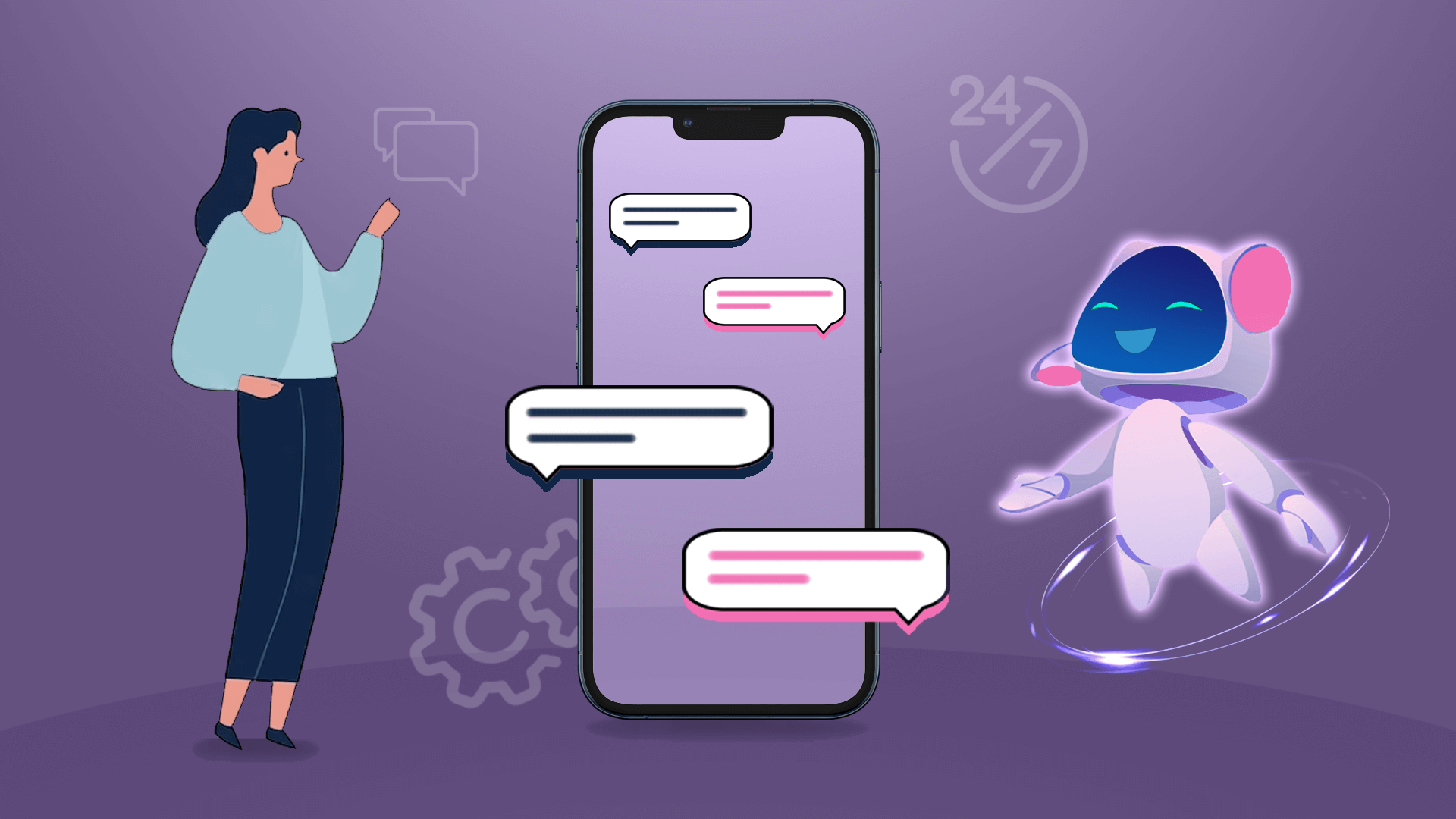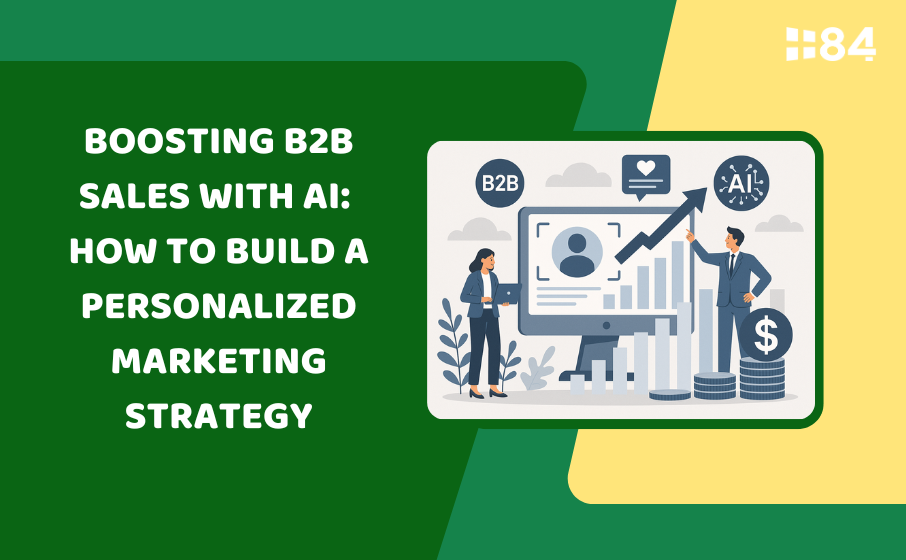In today’s fiercely competitive B2B landscape—where customers have countless choices and ever-increasing expectations—personalized experiences are no longer a competitive advantage; they are a prerequisite for success. It’s not enough for businesses to offer high-quality products. They must understand their customers, grasp their behaviors, needs, and preferences, and develop strategies that deliver the right message to the right person at the right time.
This is where Artificial Intelligence (AI) is reshaping the game. AI not only enables rapid and accurate data analysis but also opens the door to optimizing content, personalizing campaigns, and significantly improving conversion rates. But how can businesses effectively harness AI in B2B marketing? In this article, we’ll explore the powerful applications of AI and how it can help your organization achieve breakthrough growth.
AI and the Evolution of B2B Marketing
Traditionally, B2B marketing relied heavily on expert intuition and subjective assumptions. Campaigns were often guided by gut feelings rather than data, resulting in inconsistent and hard-to-measure outcomes. However, the digital age has brought a turning point. The explosion of data and advancements in AI have completely transformed how businesses engage with customers.
From Traditional Marketing to Data-Driven Marketing
AI has evolved from being just a support tool to becoming the “central brain” that drives smarter decision-making. With real-time data analysis capabilities, AI enables businesses to identify trends, customer behaviors, and key factors influencing purchasing decisions. As a result, marketing strategies can now be grounded in real data rather than assumptions—helping businesses optimize outreach and improve conversion rates.
Unilever Vietnam – A Pioneer in Data-Driven Marketing
Unilever Vietnam stands out as a pioneer in the transition from traditional to data-driven marketing. Since 2018, the company has embraced data analytics and AI to optimize its marketing efforts.
Rather than relying on broad, mass-marketing methods, Unilever Vietnam uses data to personalize messages, targeting the right audience at the right time. This approach has not only boosted campaign efficiency but also enhanced consumer experience and strengthened brand-customer relationships.
Additionally, Unilever Vietnam leads in applying AI and machine learning to its marketing operations. These technologies allow real-time analysis of customer behavior, prediction of consumer trends, and automatic adjustment of advertising content. This has enabled Unilever to not only improve marketing performance but also deliver more personalized and engaging experiences to consumers.
According to internal reports, the company has seen significant improvements in advertising effectiveness and conversion rates through AI adoption—proving that technology is not merely a trend, but a key driver of success in today’s hyper-competitive business environment.
(Source: Unilever Vietnam)

How AI Helps Understand Customer Needs
To succeed in B2B marketing, businesses can’t simply guess what customers want—they need deep, actionable insights. That’s where AI truly excels.
By analyzing customer interactions across multiple digital channels—such as websites, social media, emails, and e-commerce platforms—AI can identify individual interests and hidden needs. For instance, if a customer frequently searches for a particular product on your website, AI can automatically recommend relevant content or trigger a personalized email campaign to increase conversion potential.
This allows businesses to not only reach customers at the right moment but also deliver the information they truly need—creating a seamless buying experience and fostering loyalty.
Benefits of AI in Personalized Marketing Strategies
1. More Accurate Customer Data Analysis
One of the biggest challenges in traditional marketing is aggregating and analyzing customer data from various sources. AI addresses this by pulling data from CRMs, websites, email platforms, social media, and more—then synthesizing it into detailed customer profiles.
This gives businesses a comprehensive view of who their customers are, what they like, and what they need—enabling marketers to tailor messages that resonate with each audience segment.
2. Predicting Customer Behavior
Ever wish you could predict your customer’s next move? With AI, you can.
By analyzing historical behavior, AI can forecast what a customer is likely to do next. If a customer frequently browses a certain product, AI can recommend related content or send a well-timed promotional email—nudging them toward making a purchase.
This proactive approach allows businesses to nurture leads more effectively rather than waiting passively for action.
3. Automating Marketing Campaigns
AI doesn’t just analyze data—it automates entire marketing workflows, saving time and boosting efficiency.
- Smart Email Marketing: AI can segment audiences based on behavior and preferences, then send personalized emails tailored to each group. Instead of generic blasts, customers receive content that’s relevant to their specific interests—boosting engagement and conversions.
- Automated Advertising: AI enhances the performance of Google Ads, Facebook Ads, and other platforms by precisely identifying potential customers. These systems continuously learn and adjust, ensuring ads are shown to the right people with the most relevant content—reducing budget waste and maximizing reach.
- AI-Powered Customer Service: Chatbots equipped with AI can answer customer questions instantly and provide 24/7 support—improving satisfaction, retaining interest, and accelerating purchase decisions.
Real-World Applications of AI in B2B Marketing
AI is more than a trendy technology—it’s a powerful enabler of effective B2B marketing strategies. Here are three practical applications that help businesses improve conversion rates and overall performance.
1. Chatbots and Customer Support
Today’s customers expect immediate responses. AI-powered chatbots meet this demand by offering instant, round-the-clock assistance. From answering FAQs to handling complex queries, these bots enhance personalization, boost satisfaction, and increase conversions—while also reducing operational costs.
2. Content and SEO Optimization
In the digital age, content must be both compelling and discoverable. AI helps businesses stay visible by analyzing search trends, identifying high-performing keywords, and optimizing content for search engine rankings. This ensures your content reaches the right audience and maximizes marketing ROI.
3. Competitor Analysis
Understanding your competitors is essential for strategic planning. AI can gather and analyze data across sources to help you monitor competitor moves, anticipate market shifts, and fine-tune your campaigns accordingly. Instead of reacting to change, you can lead it—using AI to outmaneuver rivals with strategic foresight.
Challenges of Integrating AI into Marketing Strategy
While AI brings exciting opportunities to B2B marketing, it also presents challenges that businesses must address to use the technology responsibly. Effective implementation requires careful consideration of transparency, fairness, and data security. Here are three major hurdles to be aware of:
1. Data Privacy and Security
AI thrives on data—but how do you use customer data ethically while protecting their privacy? With stricter regulations like GDPR and local data protection laws, businesses must establish clear policies for collecting, storing, and using data. Failing to comply can lead to legal risks and a loss of customer trust.
2. Algorithmic Bias
AI learns from data—but if that data contains bias, the algorithm can replicate it. This could result in unfair or inaccurate outcomes. For instance, a biased dataset might cause AI to favor certain customer groups and overlook others. Businesses need to continually audit and refine algorithms to ensure fairness in decision-making.
3. Lack of Transparency (The “Black Box” Problem)
One of the biggest concerns with AI is the opacity of its decision-making processes. Often, businesses can’t fully understand why an algorithm made a certain recommendation or prediction. This makes it difficult to optimize strategies or explain outcomes to stakeholders. To address this, businesses should prioritize explainable AI models and implement governance frameworks to ensure AI-driven decisions are both rational and accountable.
Conclusion
AI is undeniably reshaping how B2B businesses engage with customers and execute their marketing strategies. By integrating AI, organizations can gain deeper customer insights, streamline operations, automate tasks, and significantly improve campaign performance.
But more than just a support tool, AI is fast becoming a core pillar of B2B marketing’s future. As the technology continues to evolve—offering smarter real-time analytics and more precise market predictions—B2B companies will be empowered to build more agile, data-driven strategies than ever before.
Ultimately, adopting AI in personalized marketing enables businesses not only to understand their customers on a deeper level but also to usher in a new era of marketing—where data, technology, and creativity converge to create meaningful experiences and drive sustainable revenue growth.


